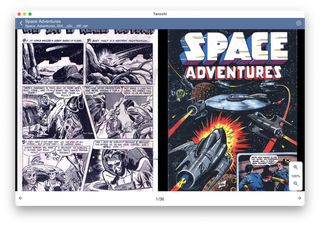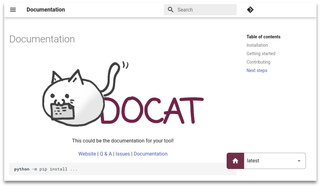Electronic voting systems are on demand, especially in time of COVID-19 pandemics.
The responsibilities of a voting system include allowing voters to mark ballots (if not using pen and paper), counting ballots, reporting election results, and ensuring the integrity of the process.
In addition, it may include ballot design and layout, as well as the functionality of a remote accessibility vote by mail system.
Voting system should facilitate auditing the results of an election. The responsibilities of a voting system do not include the responsibilities of a voter registration system. If the ballots are pre-printed, the voting system need not be capable of printing ballots.
Open Source Voting Software Solutions
1- VotoSocial
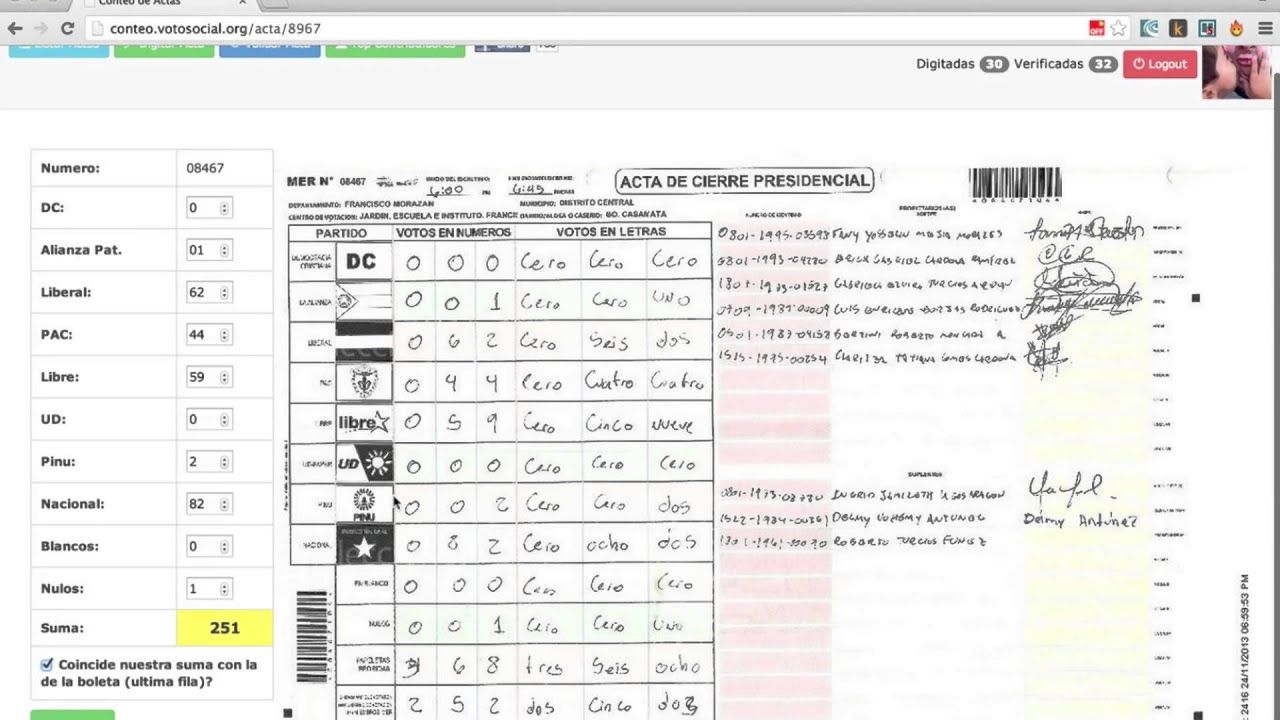
VotoSocial is an open-source electronic voting platform for official political elections of all levels including presidential, congressional, and city elections, the platform can also be used for communities, schools, and civil society organizations.
VotoSocial the most secure, decentralized, auditable, and open platform for e-voting and vote counting that everybody can trust.
The project aims to achieve fair elections that are a tamper-proof system with no central control, with total transparency and audibility, while always protecting voter privacy, it also supports research.
GitHub: https://github.com/votosocial/votosocial.github.io
2- Poll

Poll is a simple application for conducting polls simply and in real-time.
Poll requires no registration to create or enter polls, and the result's page can be loaded while results are loaded in as they occur.
The solution is is a Ruby on Rails application released as an open-source project under MIT license.
GitHub: https://github.com/adambutler/poll
3- Helios Voting
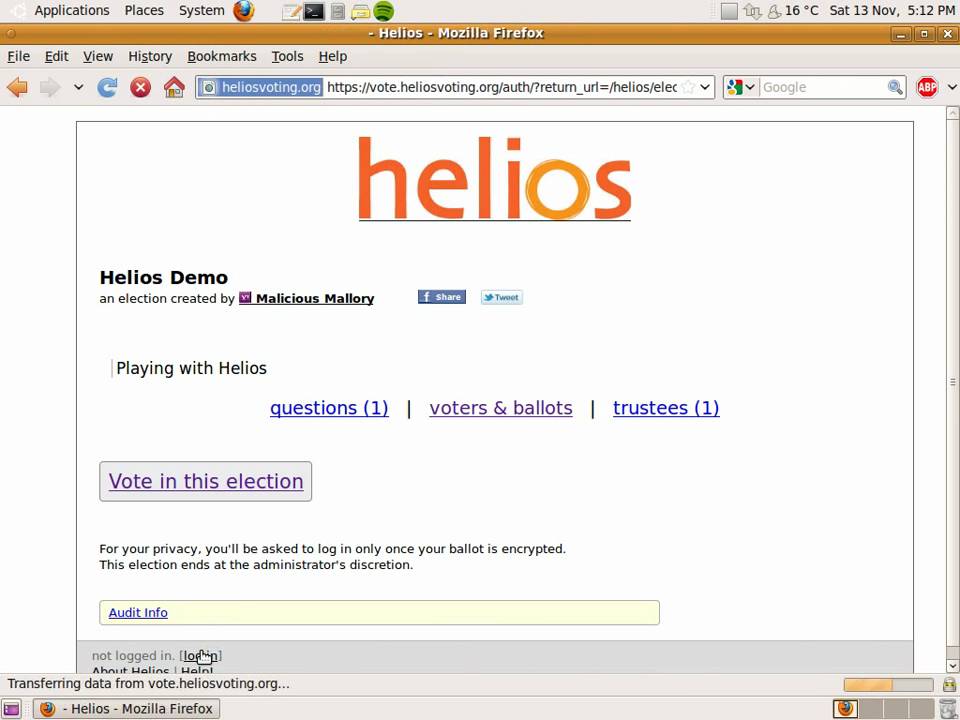
Helios Voting is an open-API, web-based, Linux voting system, uses a helios-server. Helios voting system for book club, parent-teacher association, student government, workers’ union, or state.
Helios Voting features ballots over email, election management, online voting, phone voting, online nominations, SMS Voting, voter authentication, and more.
Helios Voting is written in Python, JavaScript and licensed under Apache License 2.0.
GitHub: https://github.com/benadida/helios
4- D-CENT project
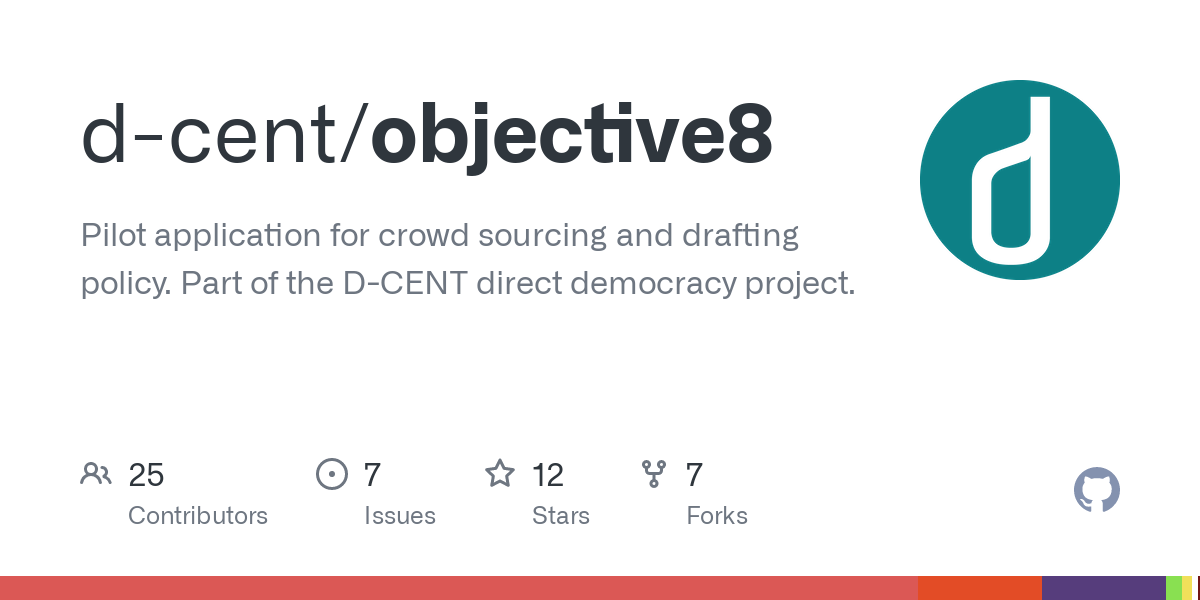
D-CENT is a Europe-wide project creating open, secure, and privacy-aware tools for direct democracy and economic empowerment. It is for crowdsourcing and drafting policy, citizens control, and ownership of data.
D-CENT based on open standards to build and grow knowledge commons, open APIs, and a shared identity system to allow for the growth of an eco-system of modular, interoperable and decentralized tools.
D-CENT has many tools that you can choose from them that will help you in your democratic process such as collaborative policymaking, citizens notifications, blockchain reward scheme, citizen priorities, and budgeting, electronic voting, secure notifications' engine, common open authentication.
D-CENT licensed under MIT license.
GitHub: https://github.com/d-cent
5- Decidim
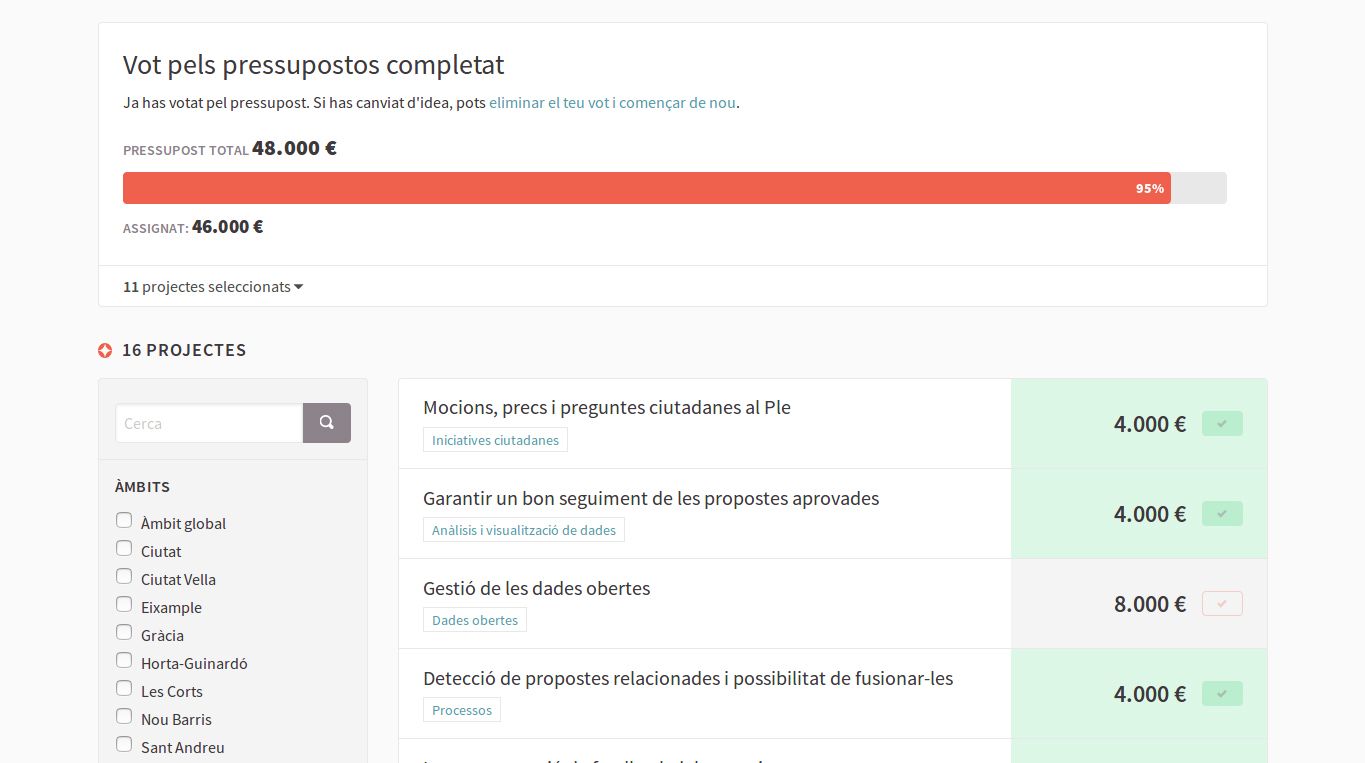
Decidim is an open-source free and safe technology participatory democracy for cities and organizations. You can use Decidim for the city council, an association, a university, an NGO, a trade union, a neighborhood collective, or a cooperative.
With Decidim you will be able to configure spaces for participation (initiatives, assemblies, processes, or consultations) and enrich them through the multiple available components (face-to-face meetings, surveys, proposals, voting, follow-up of results, comments, and many more).
You can run Decidim on macOS, Windows, and Linux. Decidim was released under the AGPL-3.0 license and made with Ruby.
GitHub: https://github.com/decidim/decidim
6- CONSUL
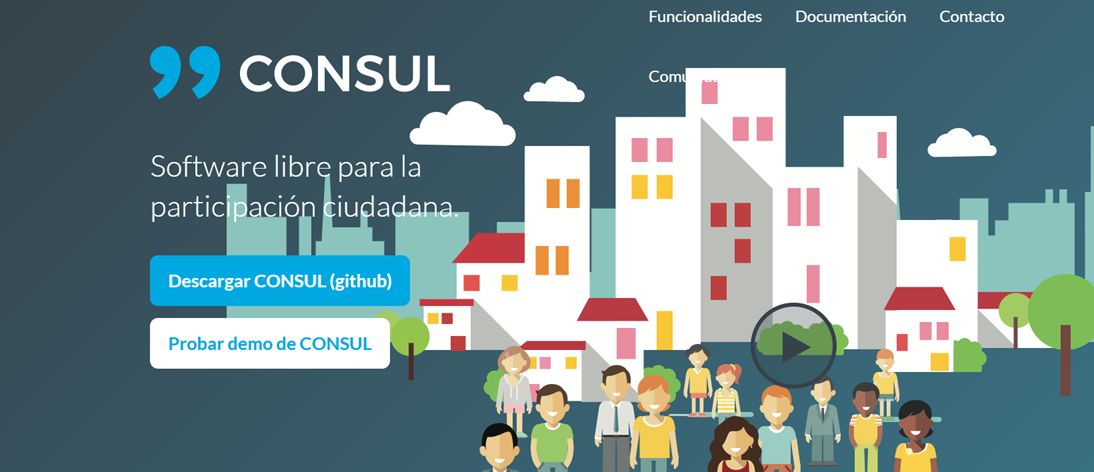
CONSUL is a free web software for citizen participation, government, and e-participation.
CONSUL has a secure voting system for citizen proposals and inquiries from the institution. It is customizable, secure, ongoing support, Debates that valued by everybody, to highlight the most important issues.
CONSUL written in Ruby language and released under AGPL-3.0 license.
GitHub: https://github.com/consul/consul
7- SF Open Source Voting TAC

SF Open Voting is a cloud-Hosted, open-API Voting System. t is a public and non-proprietary software that works on Linux and Android-based operating systems and Firefox browsers.
It is features ballots over email, online voting, printed ballots, online nominations.
SF Open Voting is licensed under GPLv3 licensed software.
GitHub: https://github.com/OSVTAC
8- E-vote
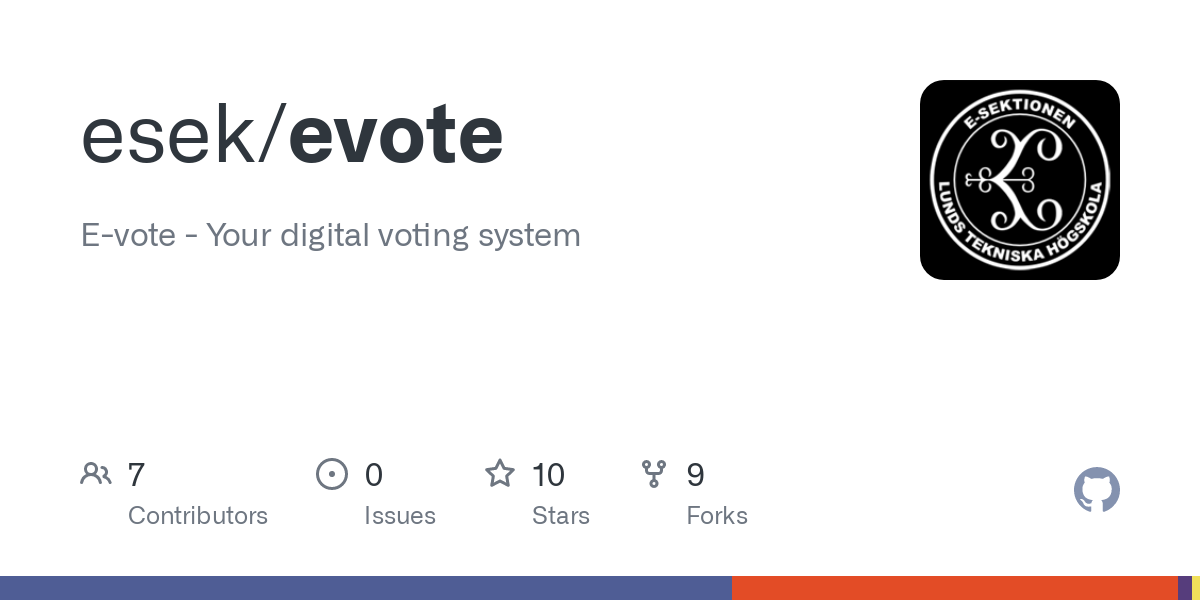
E-vote is an open-source digital voting system. It designed to be used for meetings with a limited number of people.
E-vote guarantees the anonymity of every voter and gives easy control of every voting session by using personal and temporary codes that every voter has to identify him- or herself with.
E-vote is released as a free open-source project under the MPL-2.0 license. It was written in PHP.
GitHub: https://github.com/esek/evote
9- STAR-Vote
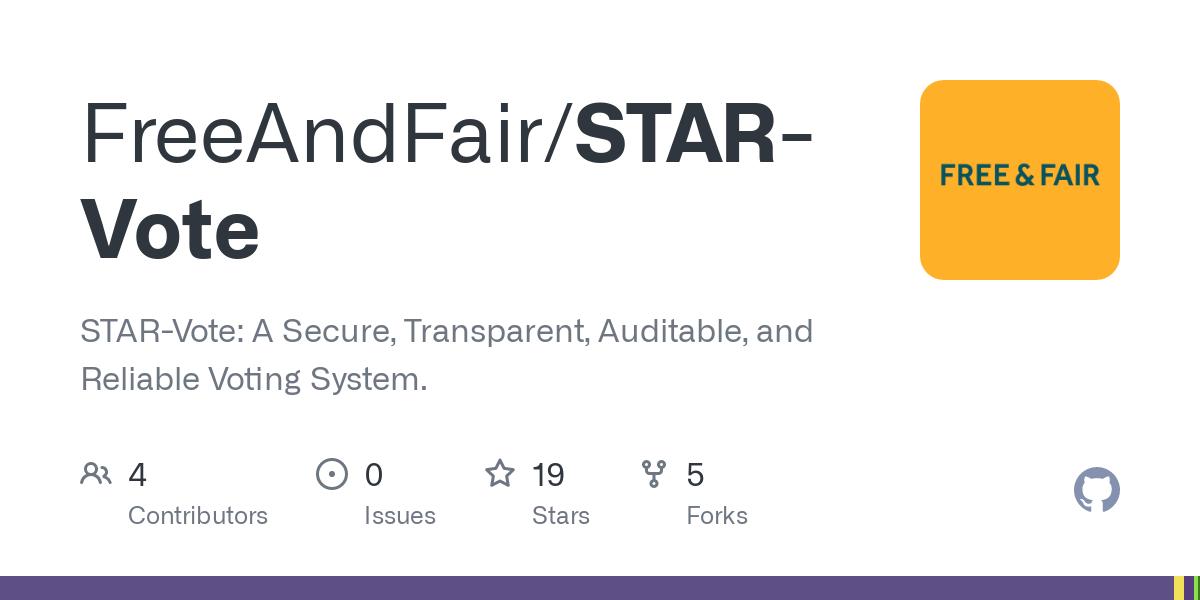
STAR-Vote is a verifiable elections software suite of products, developed by Free and Fair. STAR-Vote is a secure, transparent, auditable, and reliable voting system.
STAR-Vote provides a DRE-style human interface and a voter-verifiable paper trail. It's also using end-to-end cryptography to provide evidence of correct recording and tallying of votes.
STAR-Vote is widely used on Linux, Windows, and macOS. It is written in Haskell. it licensed under GNU General Public License, Version 3.
GitHub: https://github.com/FreeAndFair/STAR-Vote/blob/master/LICENSE
10- VTP Toolkit
VTP Toolkit is an open-Source Voter Registration Software.VTP Toolkit features certified results, election management, email ballots, online voting, ranked-choice voting, SMS voting.
VTP Toolkit is a web-based software that comes with Open-API and On-Premise deployment.
GitHub: https://github.com/vmtk/vmtk
11- OSET Institute

OSET Institute is an open-source election technology for researching, developing, and making innovative public election technology.
OSET Institute focused on increasing integrity in elections, while lowering costs, and improving usability.
OSET Institute is distributed under a GPLv3 license.
GitHub: https://github.com/trustthevote
Conclusion
This list has many good voting systems. Which one of them to choose depends on what type of features or scenarios your work is going to need.
If you have any other recommendations for this list or comments in general, we’d love to hear them below


